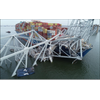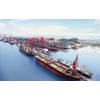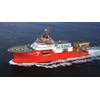Shipping Directly Employs Over 640,000 at Sea
Shipping directly employs over 640,000 workers at sea and on shore, and supports over 1.4 million workers through indirect and induced employment, said European Community Shipowners' Associations (ECSA).
These professionals possess a wealth of maritime knowledge, skills and heritage unique in the world. If Europe is to retain its pre-eminence in global shipping, this know-how needs to be cherished and cultivated.
The sector must therefore attract a sufficient number of quality new entrants and retain experienced seafarers, including women seafarers and other under-represented groups.
“European shipping and the broader maritime sector are strategically important for the EU – in terms of its contributions to trade, geopolitical role and as an important source of employment. With this in mind, it is high time to have a jobs and growth strategy that recognizes the strategic importance of Europe’s maritime know-how,” said Martin Dorsman, ECSA Secretary General.
ECSA is launching its ambitious Maritime Growth plan at an event attended by Member States, the European Commission, the European Parliament and its social partners.
The Maritime transport sector is vital to the lives of Europeans and is of great strategic importance to the European economy. EU shipping is a solid contributor to the European agenda of jobs and growth, and one of its major strategic asset.
“Through this plan, European shipowners stand committed to take forward the objectives of ‘developing an attractive, smart, safe, social and sustainable quality shipping’ and a ‘world-class maritime cluster’, identified by Member States for the EU’s maritime transport policy. ECSA calls upon all actors in the sector, at EU, national and local levels, to join forces to reach these objectives and achieve meaningful and viable solutions without compromising the competitiveness of the sector.”
The preservation of a European seafaring workforce and the creation of job opportunities through the increased attractiveness of the sector to the seafarers of today and tomorrow should be amongst our wider objectives.
Only with concerted actions and a common goal will we achieve the world-class shipping industry and maritime cluster fit to face the current and future challenges and opportunities.
Related News





